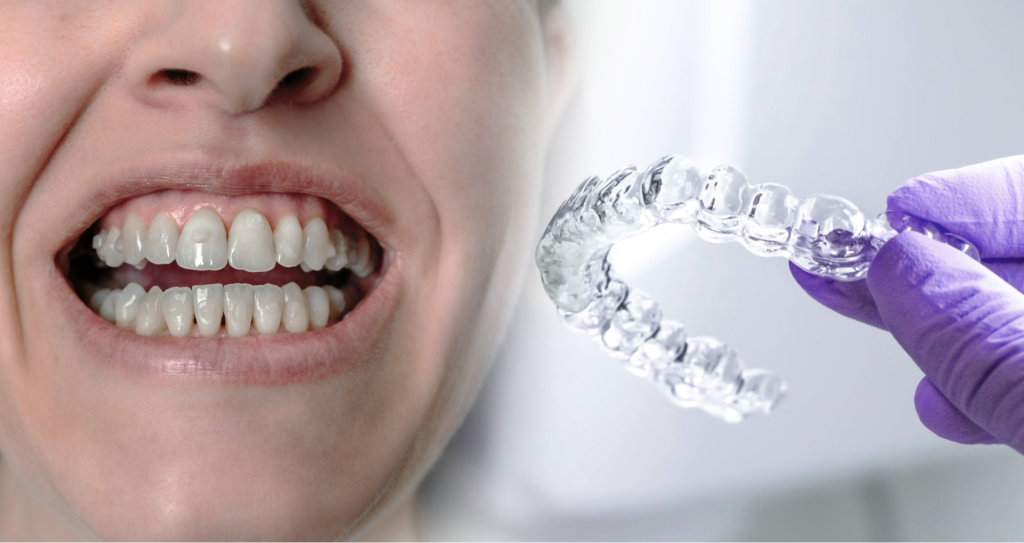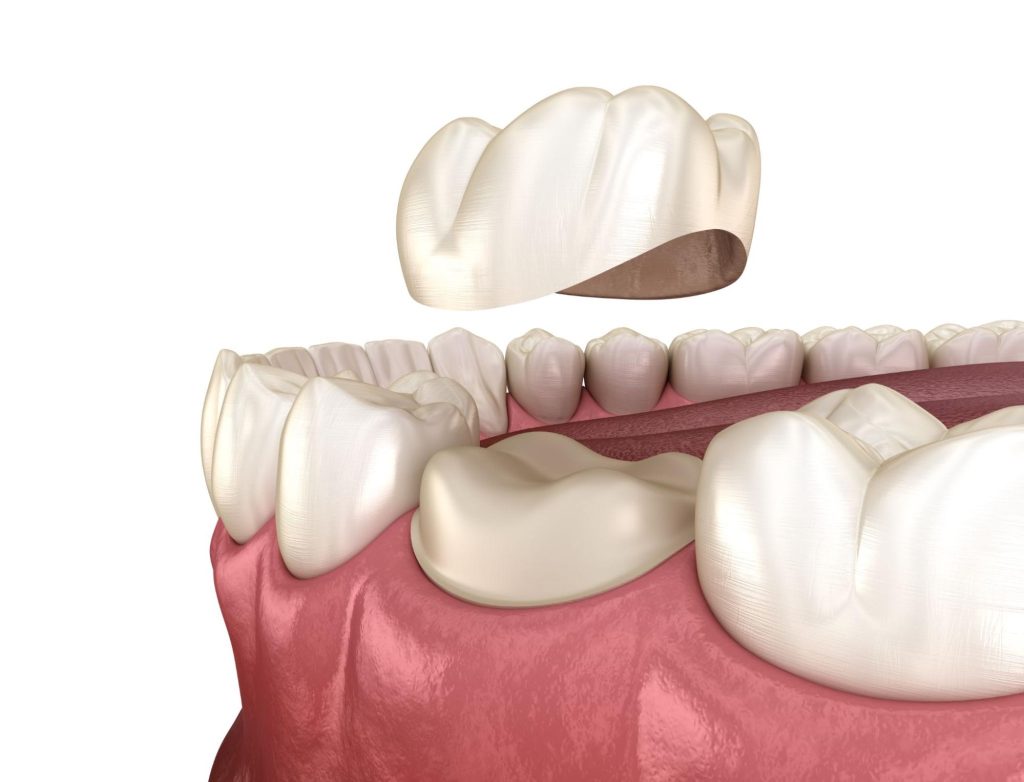Dental implants are a common tooth replacement option that is surgically inserted into a person’s jaw, restoring a person’s ability to chew or improving their appearance.
If you think you might be a good candidate for dental implants, reach out to the experts at Mosman Fine Dental to schedule an appointment today!
What to Know About Dental Implants
When a tooth is lost, a person can experience complications such as bone loss, speech troubles, or changes to chewing patterns that can result in discomfort. Dental implants replace missing natural teeth and can significantly improve a person’s quality of life and health.
What are the Types of Dental Implants?
Dental implants are a piece of metal that looks like a screw placed in a patient’s jaw to form an artificial root on which an artificial tooth will sit. This piece is called the post or base and is usually made of titanium. As the implant and gums heal, the jaw bone around the implant grows to support it. Later an artificial tooth, known as a crown, is attached to the dental implant. The crown, often made of ceramic, looks like a natural tooth.
Dental implants can replace one tooth or many teeth:
- Single-tooth implants: If you have one tooth that needs to be replaced, your doctor will perform a single-tooth implant and place a single replacement tooth or crown.
- Multiple-tooth implant: Your doctor may do a multiple-tooth implant with custom-made replacement teeth and repeat the process above for each tooth or each section of missing teeth.
- Full-mouth implant: If you don’t have any natural teeth left, your doctor may repeat the above process and do a full-mouth dental implant and create custom crowns for all your teeth.
There are two main types of dental implants; the main difference is how these implants are attached to your jawbone.
- Endosteal implants are the implants described previously, in which a cylinder or screw is surgically implanted into the jawbone. This is the most common type of implant, but it requires the bone to be deep and wide enough to support the implant.
- Subperiosteal implants: These are placed on or above your jawbone as a metal post placed under your gum to hold it in place. You may get subperiosteal implants if you can’t wear regular dentures or you don’t have enough natural jawbone to hold an endosteal implant.
How to Prepare for the Dental Implant Procedure
Getting implants is a process that requires several visits over a couple of months. While it can be a lengthy process, dental implants can help make your life easier!
- The dentist takes x-rays and digital impressions of your jaw and teeth, which assists us in assessing the spacing available in your bone and gum tissue for your implant.
- The next step is dental implant surgery involving a surgical insertion of your implant by a dentist or oral surgeon.
- The healing process typically takes 3-4 months. And after the implant crown gets created and attached to the implant.
- And finally, your new, natural-looking smile is complete.
What are the Benefits of Dental Implants?
Like with any surgical procedure, there are health risks involved. However, you may find that these risks are minimal, and the payoff of getting a dental implant outweighs those risks.
A dental implant offers a long-term solution to replace a lost or missing tooth. Unlike dentures and bridges, dental implants do not slip or shift in your mouth, making it easy and comfortable to speak and eat. Dental implants offer a secure fit to your mouth and jaw, helping the individual crowns, bridges, or dentures placed over the implants, giving a more natural appearance and feel.
Implants offer an advantage because no adjacent teeth need to be prepared or ground down to hold the replacement teeth in place, making this a relatively minor surgery.
Are Dental Implants Worth it?
Dental implants can help improve your overall health and may be necessary if you have natural tooth loss due to injury or illness. To receive implants, you must keep your teeth healthy with good oral health and hygiene practices, including healthy gums and adequate bone strength to support the implant.
The long-term success of dental implants depends on regular visits to your dentist and keeping up good oral hygiene practices.
If you’re ready to discuss your options regarding dental implant surgery or to receive a quote, do not hesitate to contact the experts at Mosman Fine Dental to schedule an appointment today



